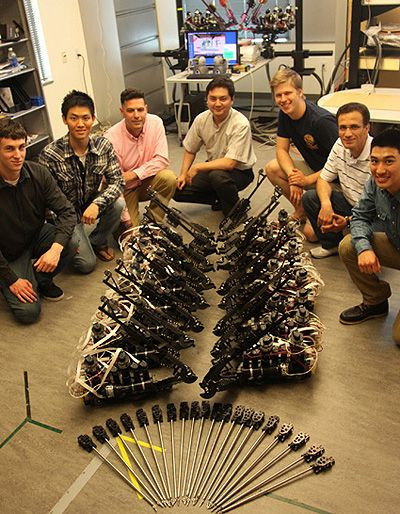Surgery Robot Creators Share Systems to Speed Medical Advances

A set of seven advanced robotic surgery systems designed for medical research laboratories have been completed by experts at University of California at Santa Cruz and the University of Washington.
After a round of final tests, five of the systems will be sent to medical robotics researchers at Harvard University, Johns Hopkins University, University of Nebraska, University of California at Berkeley, and University of California at Los Angeles. Two systems will remain at UC Santa Cruz and UW.
UC Santa Cruz said in a statement released Thursday that robotic surgery has the potential to lead to new medical procedures that are less invasive than current techniques.
The use of surgical robots is already a standard practice for prostate procedures, and telesurgery which allows surgeons to operate from a remote location offers the possibility of providing better access to expert care in remote areas and in the developing world.
Researchers said the Raven II includes a surgical robot with two robotic arms, a camera for viewing the operational field and a surgeon-interface system that allows remote operation of the robot that can enable online telesurgery.
Experts are also in the process of developing a Raven IV surgical robotics system with four robotic arms and two cameras to enable collaboration between two surgeons working from separate locations.
"We decided to follow an open-source model, because if all of these labs have a common research platform for doing robotic surgery, the whole field will be able to advance more quickly," said Jacob Rosen, associate professor of computer engineering in the Baskin School of Engineering at UCSC and chief investigator on the project.
The investigators said that academic researchers have limited access to most commercially available proprietary systems, and they hope to change this by providing identical fully-operational systems to labs in academia so that other labs can change the hardware and software so that other labs are able to easily share new developments and innovations while also maintaining intellectual property rights.



























